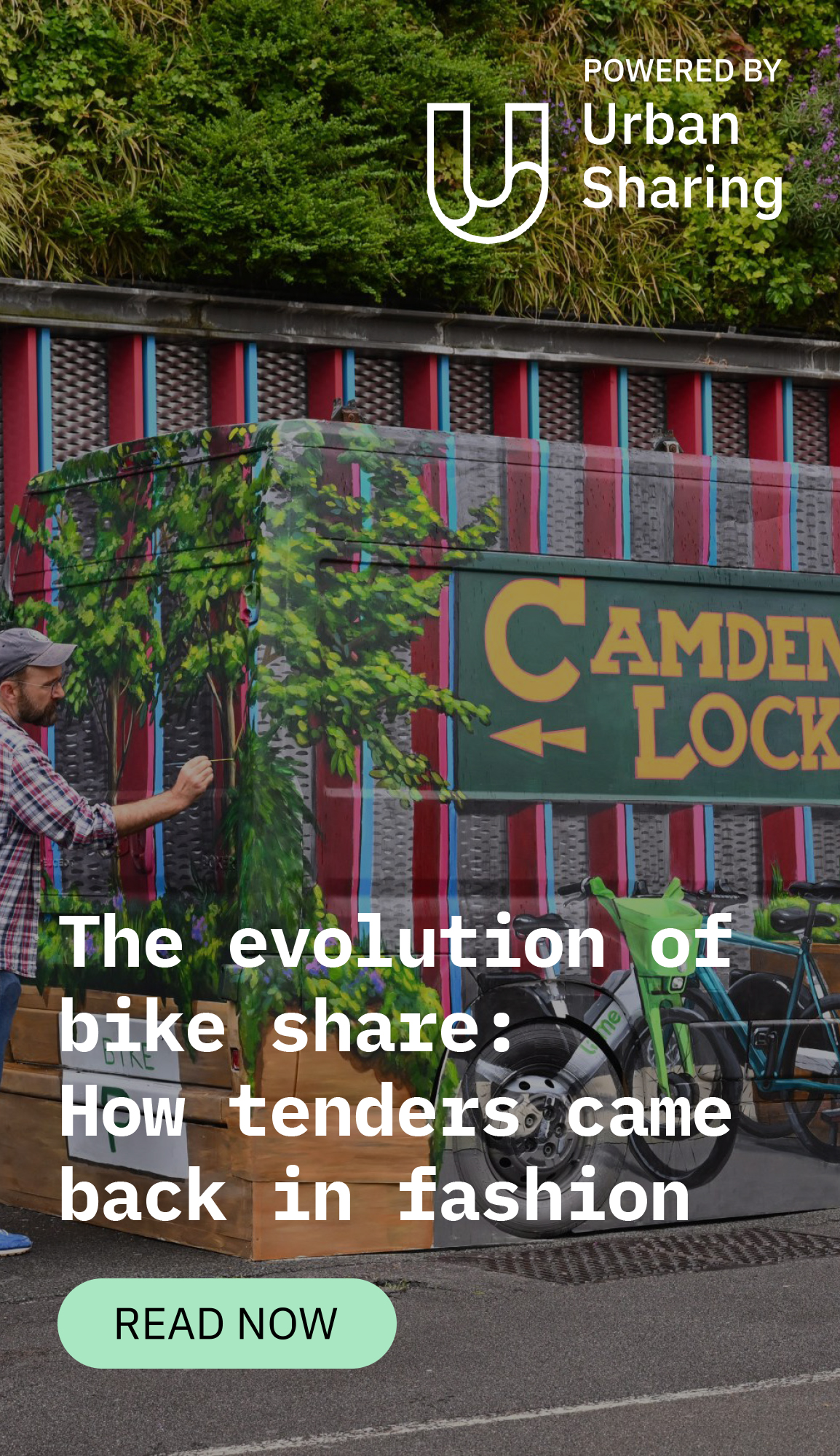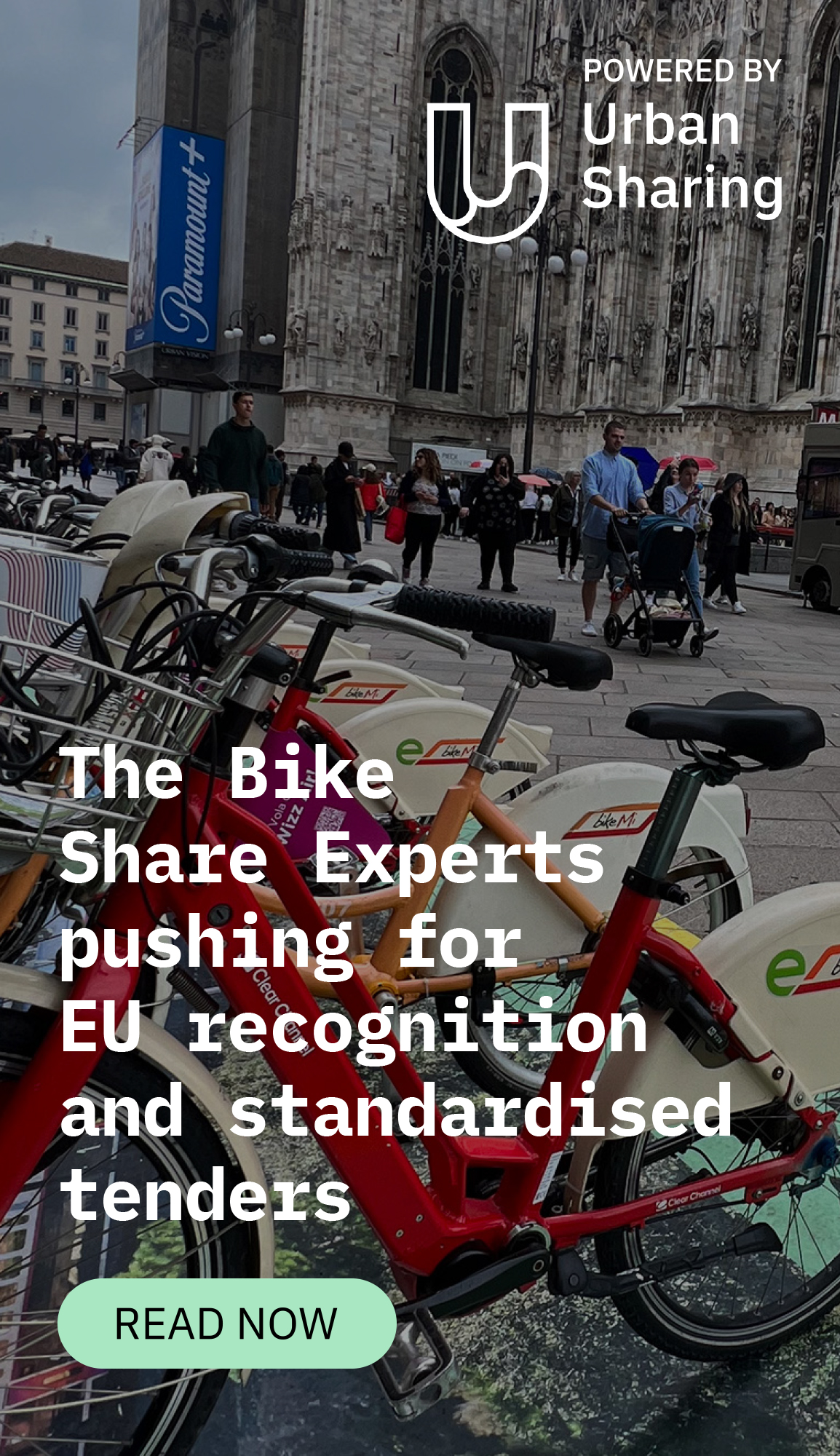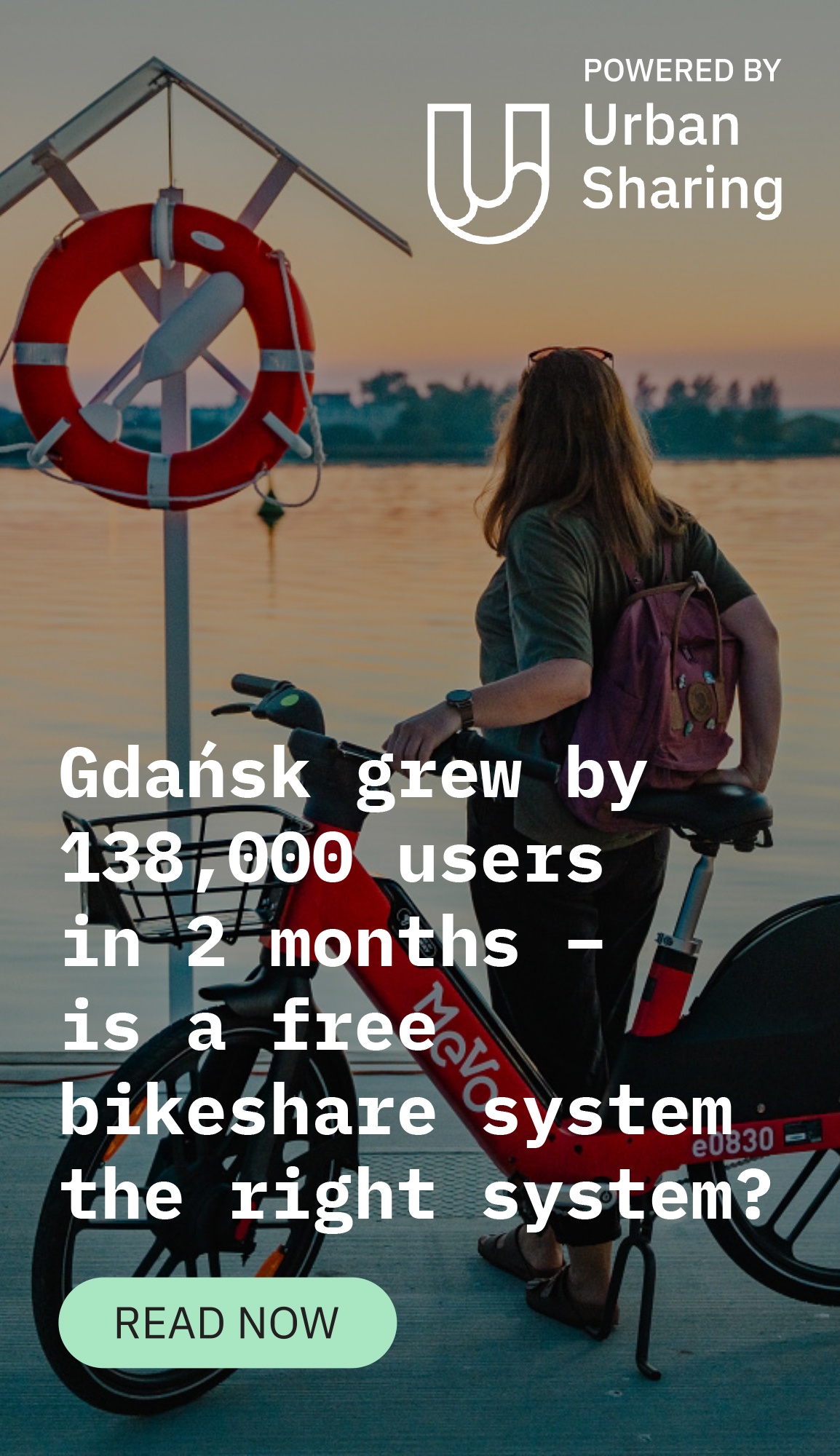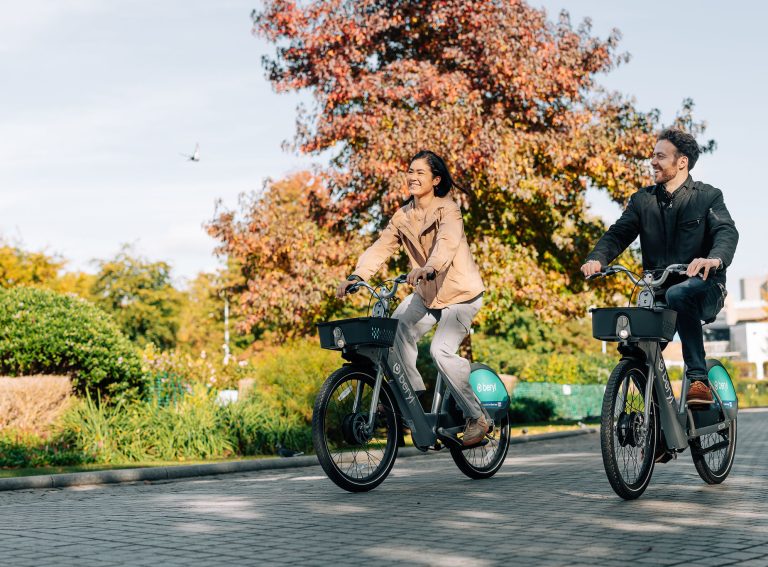Author: Patrick Donnelly, Head of Policy, Beryl
Delivering e-bike share schemes across geographically expansive regions poses financial and logistical challenges for operators and local authority partners.
But a groundbreaking new project, delivered by Beryl and e-bike share scheme partners Cornwall Council, will look to address some of these problems preventing schemes from unlocking their potential.
The project is part of the Transport Decarbonisation Demonstrators programme, funded by the Department for Transport (DfT) and delivered by Innovate UK. The competition is investing £1.6m across the seven winning projects announced this week to support research and development into the decarbonisation of transport.
A UK first, the Beryl project will look to reap the benefits of renewable energy.
What is being delivered?
Launched in September 2022, Cornwall’s e-bike share scheme currently offers 302 e-bikes and 110 bays located across several regional towns that span a combined 870 sq km.
Our plan is to use competition funding to deliver six solar powered e-mobility charging hubs across the region.
The hubs will be strategically located following consultation and will use rubberised solar panels to generate the power required for on-site e-bike battery recharging. Incentives such as discounts will be used to encourage riders to use them.
Installation of the first hub will begin in the coming weeks with all hubs set to be installed by March 2025.
But why is this scheme necessary and what benefits will it bring?
A better rider experience
We have forecasted that each of the six e-charging hubs can remove approximately 10 battery swap jobs per town each day. That will remove 60 jobs across Cornwall every day for the on-street teams and allow resources to be diverted to other areas, such as bike repair.
This should boost on-street availability by making up to 15% more e-bikes charged and available for riders every day. By making the scheme more user friendly we make e-bike share a more compelling argument for people to adopt more sustainable transport behaviours and swap four wheels for two.
Our 2023 Annual Rider Report – a survey of thousands of people that had signed up to Beryl – showed that lack of vehicle availability prevents a lot of people from using the scheme more frequently. Of those asked, 54% highlighted it as a barrier, making it the number one reason.
The Cornwall e-bike scheme has proven to be very popular since it first launched in Falmouth back in September 2022. Making more e-bikes available on the street should help us to build on its initial success even further.
Financial impact
By reducing the number of battery swaps required, e-mobility charging hubs reduce the operational cost of running a scheme. This is amplified in semi-rural areas where relatively smaller on-street teams must cover larger and less densely populated zones.
This is important from a funding perspective with the project helping to capitalise operational costs, making it more aligned to the capital-focused government funding pots for active travel schemes.
With rural schemes often operating with fewer vehicles, it’s also difficult to fund operational costs using revenue, making it difficult for schemes to expand.
Solar analysis of the U.K. has highlighted a number of areas that generate enough solar energy to power e-mobility charging hubs. Several of these already have active Beryl e-share systems, allowing a potential expansion of this trial in the future.
For authorities such as Cornwall, who have a clear vision to prioritise active travel measures in their long term transport plans, this increases the scope for e-bike share schemes to maximise their potential.
The council view
Cornwall Council has committed to being carbon neutral by 2030 and work with local communities to cut carbon emissions. With road transport contributing to more than a quarter of Cornwall’s greenhouse gas emissions, the Council has been working for some time to improve transport infrastructure.
Transport surveys show that around a quarter (and in some towns, almost half) of all commuter journeys made by car in Cornwall are of less than three miles. This is a statistic the Council is particularly keen to reduce.
It’s about supporting residents to make more sustainable choices about how they travel – and the Council’s partnership with Beryl is a prime example of how they’re doing just that.
The future
Ultimately, the project will aim to increase ridership and we estimate that the improvements could generate up to 50,000 more trips across Cornwall every year.
This would further reduce traffic congestion and emissions, improve air quality and increase physical activity levels, which is proven to benefit people’s physical and mental health.
On a wider note, it could prove to be a vital cog in the council’s delivery of an integrated low-carbon transport network, which will help them reach their long-term sustainability targets.
Success could also establish the project as a blueprint for delivering successful e-vehicle share schemes in less densely populated rural areas across the south of England.
We’re really excited about its potential.











